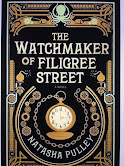When the Words Won’t Come
How to Deal with Writer’s Block
Writer’s block is one of those things about which every writer has an opinion. Those opinions run the gamut of possibilities from outright fear to denial of its existence.
If you write, you will eventually be unable to write the one thing you want or have to write. It’s always a good idea to have a few ways to approach it in mind.
- The most obvious, and, sometimes, the least palatable suggestion is to walk away. Stop stressing about. Write something else or find a completely unrelated activity and put your project out of your mind. Do something else. Take a walk. Listen to music. Watch a movie. Go out with friends. The old saying a change is as good as a break applies here. A change of scenery and something else to think about may well give your creativity a jump start.
- Write what won’t happen. If you’re writing fiction and you just can’t write the one scene you really want to dive into, or you’re just not sure what should happen next, chances are you have some idea of what won’t happen. The protagonist won’t rob a bank or run for president or jump on a plane and fly to Vegas or Tahiti or Timbuktu. Whatever won’t happen, write it. Get as detailed as you like. Write it as a legitimate scene/chapter. The stress of forcing the narrative to go the way you want it to go evaporates. You may learn something about your characters and it may just spark a thought that points you in the right direction…or even a direction you might not have considered otherwise. If you’re dealing with non-fiction or with advertising copy, just get a little crazy. Write something in fun, but treat it as though it’s a serious legitimate part of your piece. You might be surprised where it takes you.
- If you can’t write the next scene, write some other scene. Chances are you have a few key scenes worked out in your head. You don’t have to write your story chronologically. You don’t have to write the next scene just because it’s the one you think is next. If you know the ending, write it. If you know the middle, write that. Write a note in your draft where the troublesome scene should go so you remember to come back to it. Bridging the scenes may be easier once you have both sides of the gap constructed.
- Word association—write down words related to your character or plot or even your setting. Write as many as you can and then choose one. Just one. Let that word be the inspiration for your scene. A single word can be a liberating writing prompt.
- Rewrite the previous scene from a completely different point of view. A different character will see things completely differently. No two people will ever describe the same thing exactly the same way. Maybe the antagonist and the hero share a scene, but you’ve written it from the hero’s perspective. The antagonist will see things in a different light. Viewing a scene from that perspective will shed new light on what you’ve already written and possibly even spark an entirely new flood of ideas.
There are, of course, as many solutions as there are writers, so watch this space for even more suggestions in future posts, or comment about what keeps you writing in difficult times.






Comments
Post a Comment